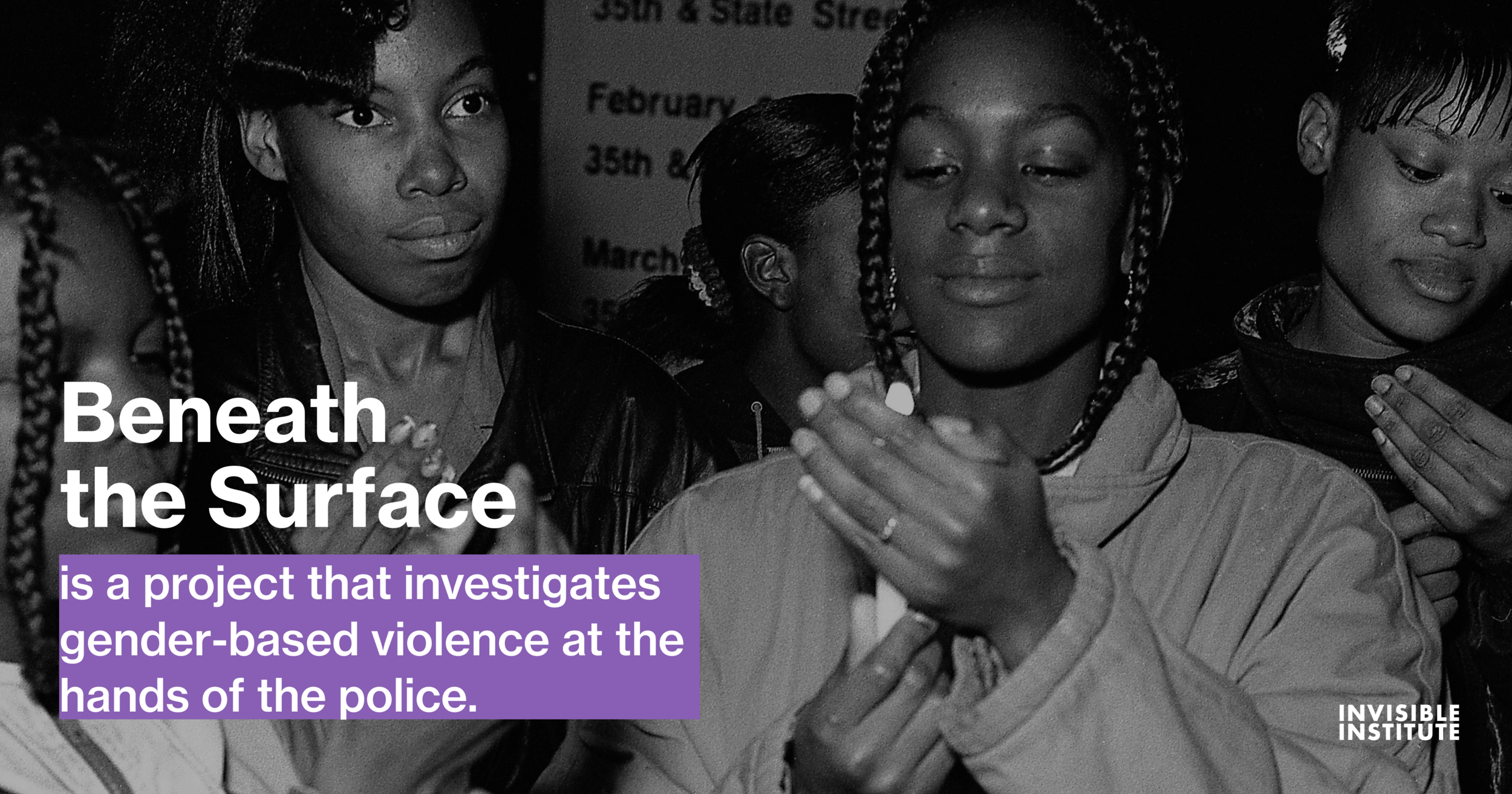Beneath the Surface
Beneath the Surface uses machine learning and narrative justice to better understand how marginalized communities experience police violence. The Invisible Institute has worked to make police complaint data public for years, but even when complaint data is public, significant information remains inaccessible. We hope this investigative journalism will strengthen the testimonies of, and advocacy efforts for, people most affected by advancing public conversation about policing, safety, and gender, while holding data science research accountable to lived experience and increasing the accessibility of public data.
Basic descriptive statistics about the experiences of Black women and trans people are incomplete or missing entirely from the public discourse about police violence. When someone files a complaint, although there may have been multiple allegations reported, the complaint receives a primary complaint category determined by the person intaking the complaint. A complaint may be primarily categorized as an “illegal search,” for example, when the underlying narrative also contains an allegation of sexual violence.
Primary complaint categories thus obscure the depth of the allegations. This practice veils information about sexual violence in common data analyses of police misconduct. If complaint categories continue to frame the narrative, sexual violations in these encounters are erased, and this pattern of abuse will continue. New information surfaced by this project will provide insight into the impact of police violence on women and transgender people, communities most affected by sexual violations and public indifference.
Beneath the Surface is committed to building the bridge between data science and narrative justice, while centering survivors' experiences. We use principled data processing, a data pipeline coined by Patrick Ball of Human Rights Data Analysis Group (HRDAG), for processing data and machine learning. Every week a team of Black programmers meets with our partners at HRDAG to share code and improve their technical skills, working towards a data practice that is replicable, auditable, scalable, and transparent. Our investment in this team will better equip members to use data science to address human rights violations in their communities moving forward.
Trina Reynolds-Tyler leads this project as our director of data. Her experiences as a native SouthSider and organizer for human rights on the South and West side of Chicago since 2015 inform the Invisible Institute’s approach. Our “how” emerges from a sustained proximity to, and care and respect for the knowledge of survivors and Black people. We are committed to sharing findings and holding conversations with the communities represented in the data at every stage in the process because those experiencing sexual violence at the hands of police are routinely dismissed in our public discourse.
Last year, filmmaker cai thomas followed our director of data Trina Reynolds-Tyler as she led more than 400 volunteers in analyzing police complaint narratives for our Beneath the Surface project and attended the annual We Walk for Her March for Missing and Murdered Black Women in Bronzeville.
This short film was recently released as part of PBS Independent Lens' Bridge Builders series.
Excerpt from a conversation between Trina Renyolds-Tyler and Maira Khawja about the origins and significance of the project in View from the Ground Vol 3. Issue 11 (November 19, 2021).
T: When we first started the project, we prioritized sexual violations at the hands of the police and because we knew there would be instances of it but because we were using machine learning, we realized that we [...] could actually look for some larger themes or other context around complaints, and so that's what we did. We identified sexual violations, but there's also complaints like “home cases,” where officers entered a home, or “disabled cases” where a disabled person was present or impacted in some way. We embraced this kind of flexibility, this opportunity to not just look into sexual violations, but ultimately identify other forms of gender based violence.
M: Over the past month you've had a series of events--some just for Black women and non-binary people, some just for Black men, and some for anybody who was interested in the work. Can you tell us why you decided to have events before releasing an investigation?
T: The decision was deeply rooted in respect for the people who have not only come forward about these things, but also who have lived through these things and haven't actually spoken to anybody at all about it.
Read the full conversation here. Subscribe to View from the Ground to receive monthly updates on our work.
If you’d like to continue to learn more about this project, or to volunteer, please sign up here.
